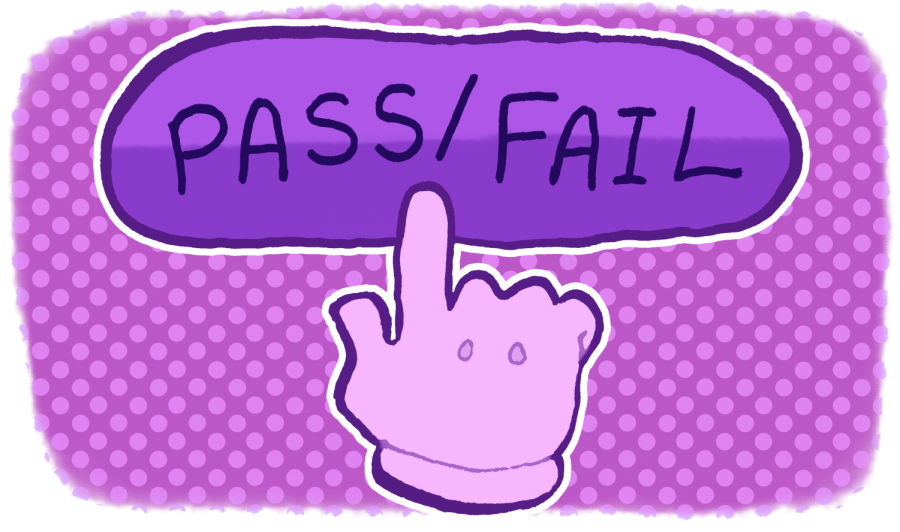Allow COVID-19 pass/fail options for this semester
November 11, 2021
During my sophomore year of college, I felt left out. A year of my college experience was stripped away from me. I was limited to Zoom lectures and Discord hangout sessions with old high school friends. Zoom fatigue accumulated little by little everyday and random bursts of burnout, alongside cravings for social interaction became the norm.
As I transitioned to being on campus for the first time, I was thrown off even more by going to fully in-person classes.
To accommodate students who are struggling with the adjustment from remote classes to in-person education, UT should extend COVID-19 pass/fail options for the fall 2021 semester.
During his first semester at UT, biomedical engineering sophomore Joseph Park was greeted with fully remote classes. Online classes made it more convenient for Park to sleep in a little bit more and turn on Zoom right when he needed to be in class. However, it also made it harder for him to engage in classes, study for exams and overall stay motivated for school.
“It’s still a little hard (to adjust right now) just because everything’s online … Half of my classes are in person,” Park said.
With the sudden transition to in-person classes this semester, Park said adjusting to his first semester on campus was difficult. The pressures of classes felt more daunting than ever, and the lack of the COVID-19 pass/fail “safety net” was instigating more stress on his academic performance.
“(Having) like one or even possibly two pass/fail options (this semester) would relieve a lot of pressure on students and give them a chance to adjust to college,” Park said. “It’s kind of like you’re setting (students) up for success rather than failure.”
When asked about the logistics of pass/fail options, Kathleen Harrison, assistant director of communications, commented through email that the University consulted with Student Government and Faculty Council to determine if changes are necessary.
“With these existing opportunities and the added resources, along with lower COVID infections on campus and in Austin students can successfully navigate this semester and future semesters in ways that are similar to a pre-pandemic academic year,” Harrison said, through an email while referencing already established Texas One Stop resources. “And as we move into the spring and the 2022-23 academic year, UT will continue to monitor conditions and listen to the concerns of our students, faculty and staff.”
But the pandemic is not over, and COVID-19 is still prevalent within the UT community. Being completely in person does not mean that COVID-19 accommodations should cease. Last year, when UT gave students pass/fail flexibilities to apply to nearly any course towards their degree, students were able to successfully persevere through the year without having to sacrifice their academic career. Although the academic environment has rebounded similar to that pre-pandemic, students need the opportunity to catch up, especially those who have never experienced a normal semester.
UT’s academic flexibility should reflect that they are setting students up for success –– not hammering down on students while they undergo a change in environment from the previous semester.
“I think that a lot of students are struggling, and it feels like that is not emphasized by the University,” Park said. “The school system kind of feels like you, as an individual, have to do well in school –– if you fail, it’s your problem. A significant number of students are struggling and the University needs to take that into consideration.”
Ma is a journalism and Chinese language and cultures junior from The Woodlands, Texas.



